- Christmas customs and traditions in Greece
by 6o EPA.L Irakliou
Christmas celebrations in Greece officially last for 14 days, starting on Christmas Eve and ending on Epiphany (6 January) with the ‘Great Blessing of Water’. Following the Gregorian calendar, the Greek Orthodox Church celebrates Christmas on 25 December. However, as soon as December arrives, festivities begin: homes are decorated, and the smell of Christmas treats is in the air.
Decorated boats
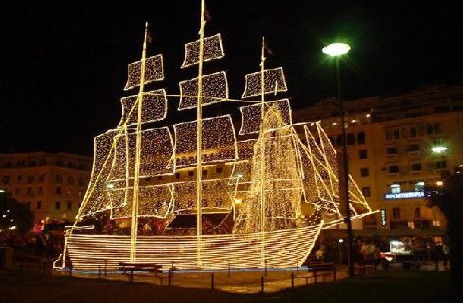
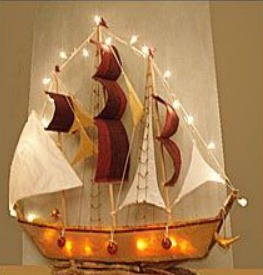
Originally a German and Scandinavian custom, the tradition of decorating Christmas trees was introduced to Greece in 1833 when the Bavarian Prince Otto, who was at the time ruling the country (1832 – 1862), decorated the first Christmas tree in his palace in Nafplio. For the next few decades Christmas trees were only seen in upper-class households and the custom only became widely popular after World War II. Until then, it was much more common for Greek households to decorate a small boat. Being a maritime nation, Greece has a long naval heritage and the illuminated boat symbolises a love and respect for the sea, as well as the anticipation of reuniting with seafaring relatives and welcoming loved ones home. Also, the ornamented boat, it says, symbolizes man's new voyage into life after the birth of Jesus.
Christ bread (Christopsomo)
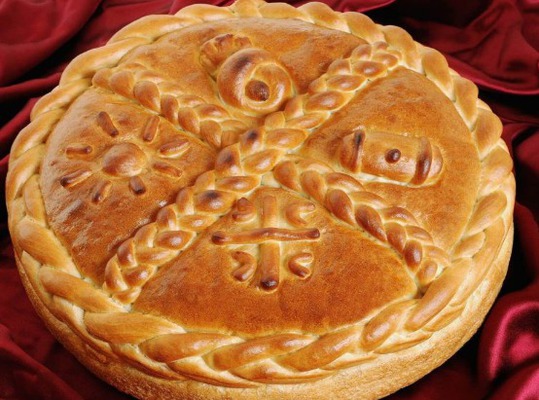
Christopsomo (Christ bread) is a round loaf that is a staple of the Greek Christmas table.“Christopsomo dates back to the Ottoman era and still remains part of the customary festive food that are a prominent element of Greek Christmas traditions,” Every Christopsomo has a cross made of dough in the centre, as well as almonds and nuts sprinkled on top to symbolise prosperity. Christopsomo is eaten on the night of Christmas Eve. In every house the housewives prepare the Christopsomo with all their love and this is also transmitted to the Christopsomo
Festive fare
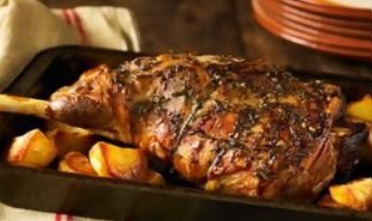
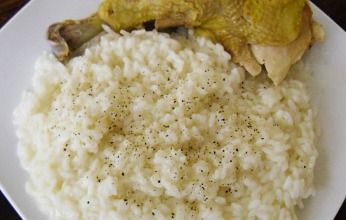
Traditionally, the main dish on the Greek Christmas festive table was pork – a custom that many Greek families preserve. In some regions, it is common to make cabbage leaf rolls filled with pork accompanied by celery or spinach.
Also a common meal for the Christmas party is the chicken either stuffed or boiled with rice called pilaf.
Christmas desserts
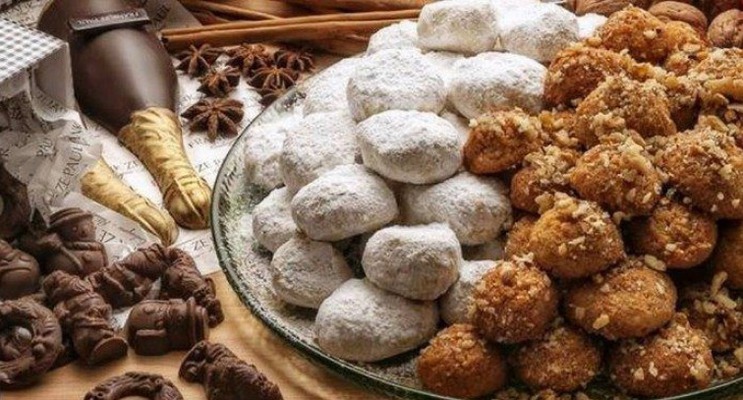
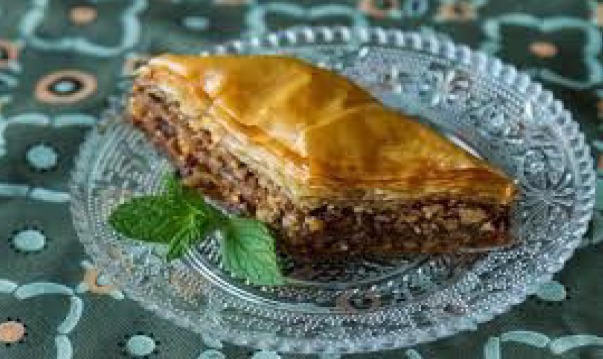
Melomakarona (honey cookies) and kourabiedes (sugar-coated butter cookies) are the most popular traditional Christmas desserts in Greece. Made solely of ingredients sourced locally, these scrumptious delicacies have, “The main ingredients of melomakarona and kourabiedes are olive oil, honey, oranges and nuts, which are Greece’s most famous food products.
A well-known Christmas sweet for Greeks is baklava, a traditional dessert that originates from Asia, consisting mainly of thin sheets of dough in many layers of nuts and syrup.
Singing carols

On Christmas Eve,across the country in the morning,groups of kids holding musical triangles stand at the doorstep waiting for permission to begin singing traditional Christmas carols (kalanta). Greek Christmas carols start with the narration of Christ’s birth, continue with expressions of praise for the household and the people living in it and finish with the kids’ request for a symbolic gift. In addition to a small amount of money, the lady of the house usually offers the children a sweet treat (normally a traditional melomakarona or kourabie).
Vasilopita and bougatsa
Vasilopita, translating to Saint Basil’s pie, is a traditional dessert made for New Year’s Day. Every Vasilopita contains a coin; the head of the family cuts the pie into pieces, and whoever finds the coin is said to be in store for a lucky year. This tradition derives from the myth that residents of Cappadocia had collected money and jewellery to give to the area’s tyrannical prefect as a tax. Saint Basil managed to change the prefect’s mind and exempt local people from having to give away their valuables. Not knowing how to return the possessions to their rightful owners, the residents followed Saint Basil’s advice and made small pies. Saint Basil then put the jewellery and money inside the pies and miraculously each person received their own valuables.
Apart from the royal pie on New Year's Eve in Greece also eat bougatsa, bougatsa is a thin layer of dough filled with sweet cream and served with sugar and cinnamon.
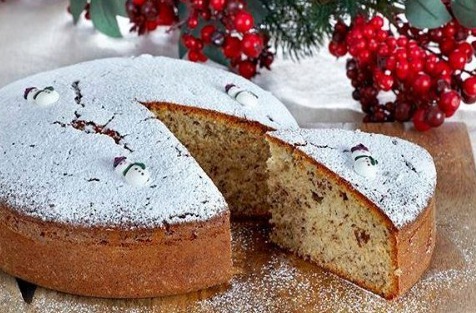
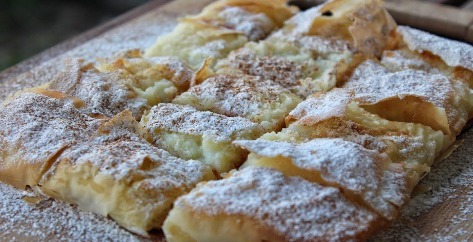
The Blessing of Water (Epiphany)
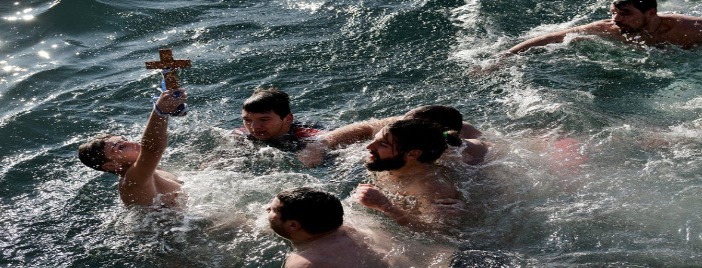
Epiphany (January 6), called Theophany and colloquially Ta Phota (meaning ‘lights’) in Greece, is a feast day celebrating the baptism of Jesus at the Jordan River by Saint John the Baptist. After the Divine Liturgy, priests carry out the water blessing. Priests throw a cross into the sea, river or lake and a group of men jump into the water to recover it. It is said that the one to find the cross first will be blessed for the whole year and that, following the ceremony, the water is totally cleansed.